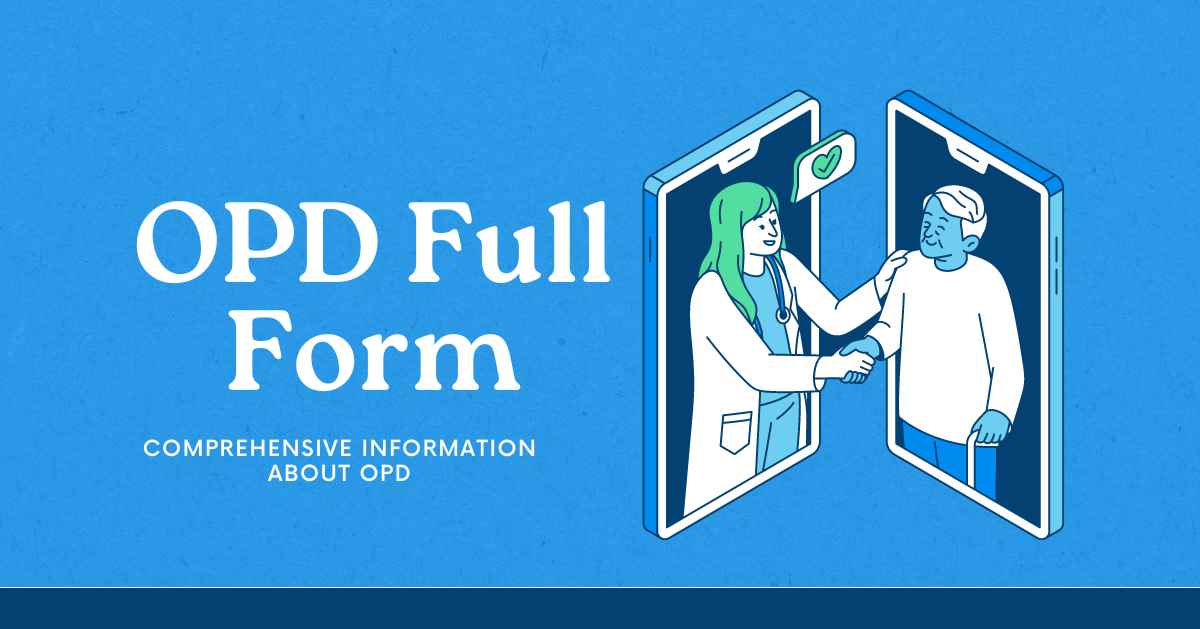OPD Full Form: Comprehensive Information about OPD

The term OPD Full Form is “Out patient Department”. which plays a role in hospitals as the interaction between patients and healthcare professionals. In this department, physicians conduct assessments and evaluations to identify the care or therapy required by patients. Following this evaluation patients may be directed to units like Cardiology, Orthopedics or Neurology for medical attention.
What is the OPD?
The Outpatient Department (OPD) is usually found on the floor of a hospital. It includes areas, each focusing on medical fields such as Neurology, Orthopedics, Gynecology and others. People go to the OPD for advice, examinations and minor procedures without requiring a stay at the hospital.
Functions of the OPD
1. First Appointment: The outpatient department (OPD) is where patients have their appointments for diagnosis and primary medical attention.
2. Medical Evaluation and Assessment: OPD doctors perform assessments to accurately diagnose the patient’s health condition.
3. Transfer to Specialized Units: Patients needing treatment are directed to the departments within the hospital for further care.
4. Healthcare Offerings: The OPD offers a range of services such as checkups, medical tests, minor surgeries and treatment for wounds.
Difference Between Outpatient and Inpatient
Outpatient: An outpatient is someone who gets care without staying in the hospital. They go to the outpatient department, receive their diagnosis and treatment and then go home.
Inpatient: A hospital inpatient refers to a patient who is admitted to the facility and remains there overnight or for a period to receive treatment. This is typically crucial for procedures or medical conditions that demand thorough supervision and attention.
Advantages of the OPD
- Minor Procedures: The outpatient department (OPD) performs procedures that allow patients to receive treatment without requiring hospital admission.
- Emergency Care: Accidents and sudden medical situations can receive care at the outpatient department (OPD).
- Convenience: Patients have the option to meet with physicians and get care without having to stay in a hospital, which is both convenient and budget-friendly.
Health Insurance and OPD Coverage
Most health insurance policies include coverage for treatments and appointments at the outpatient department (OPD). When deciding on a health insurance plan it’s crucial to take into account the premium cost, monthly fees and the scope of OPD benefits. Considering these aspects will help you choose a plan that meets your healthcare needs and remains cost-effective.
[Also Read: IIT Full Form]
Conclusion
The OPD Full Form outpatient department (OPD) plays a role in every hospital offering medical care and serving as the initial point of contact for patients. Its purpose is to provide accessible healthcare ensuring that patients can access required treatments without requiring hospitalization. Having a grasp of how the OPD functions and its benefits can assist patients in managing their healthcare choices.






